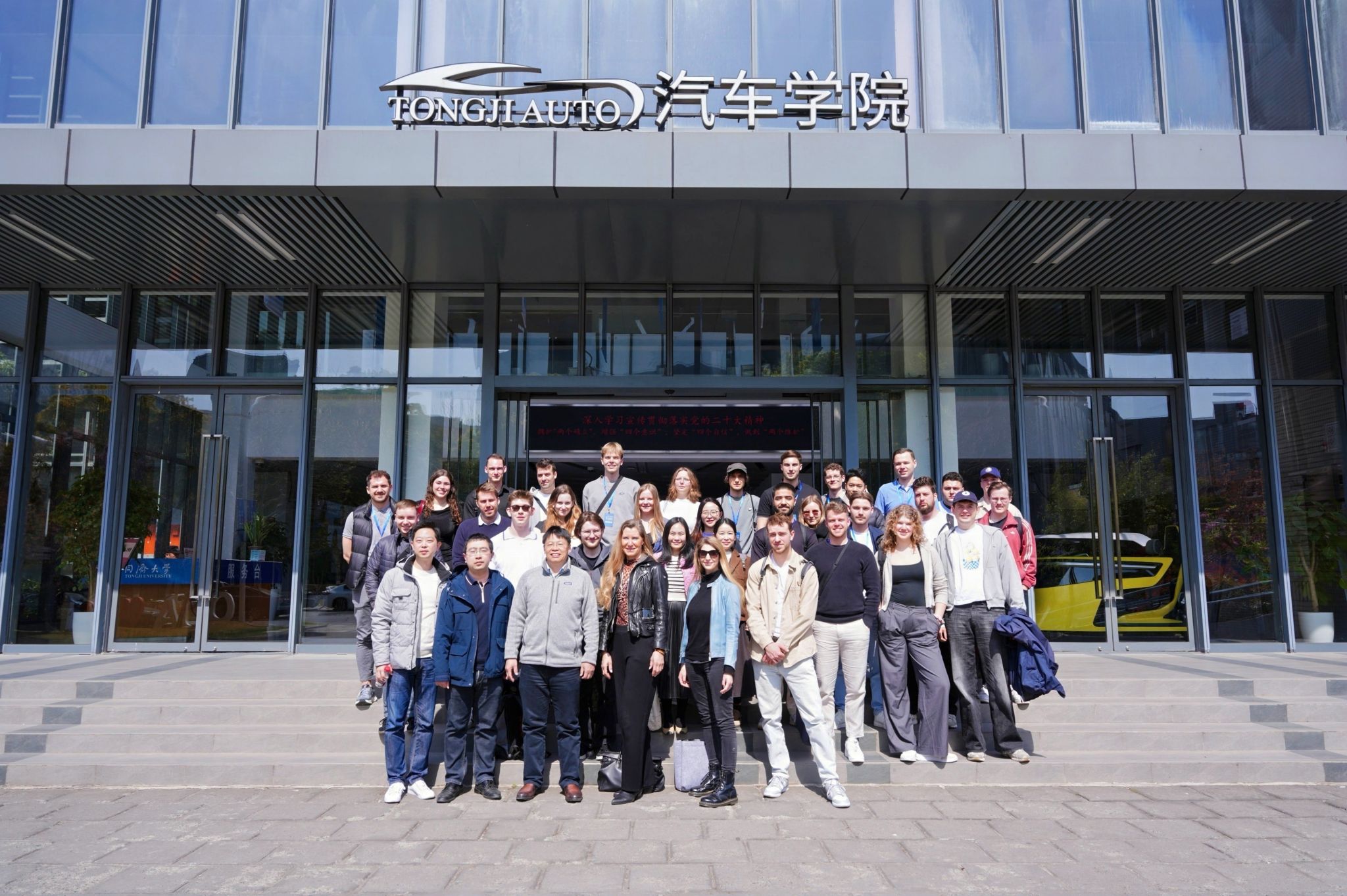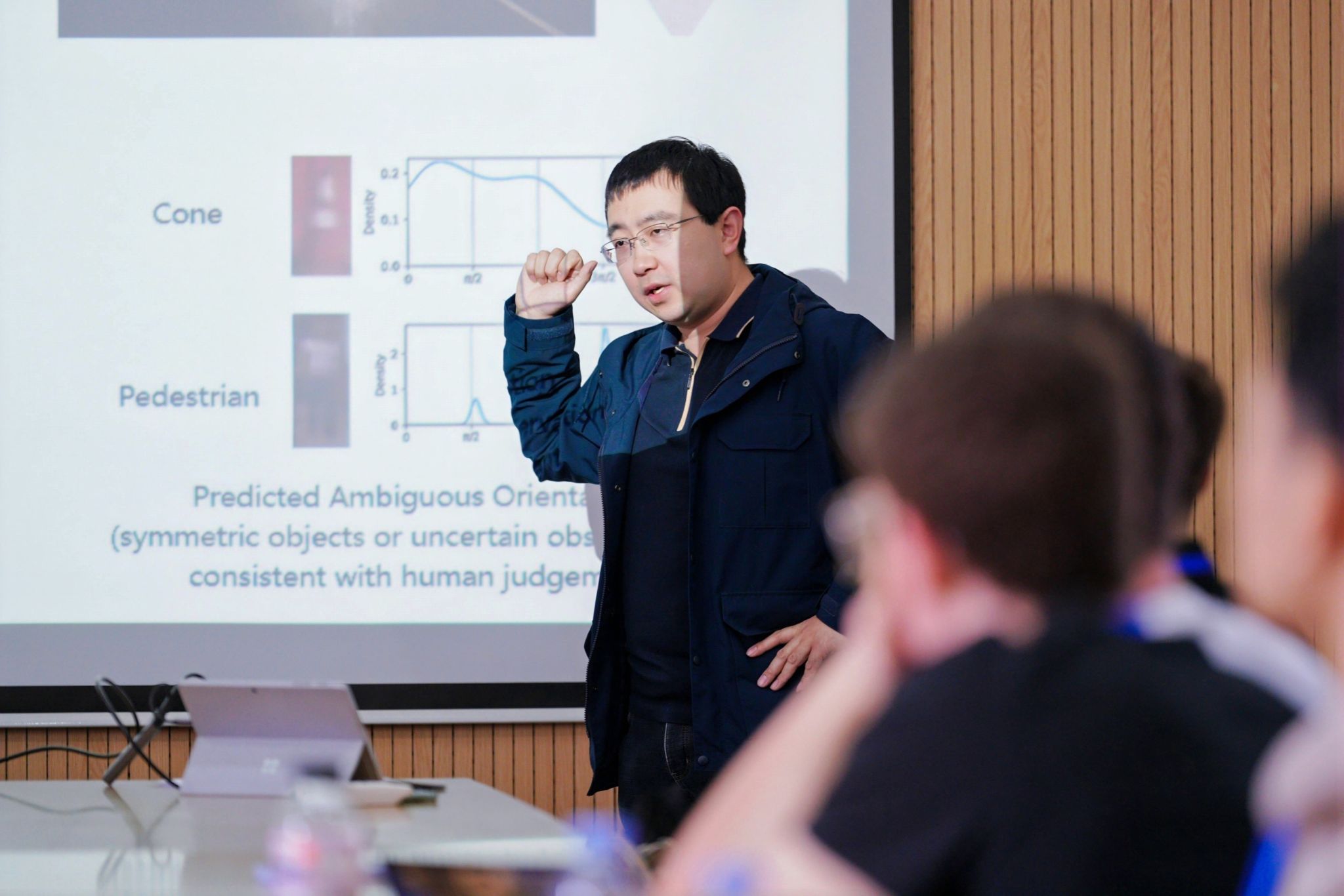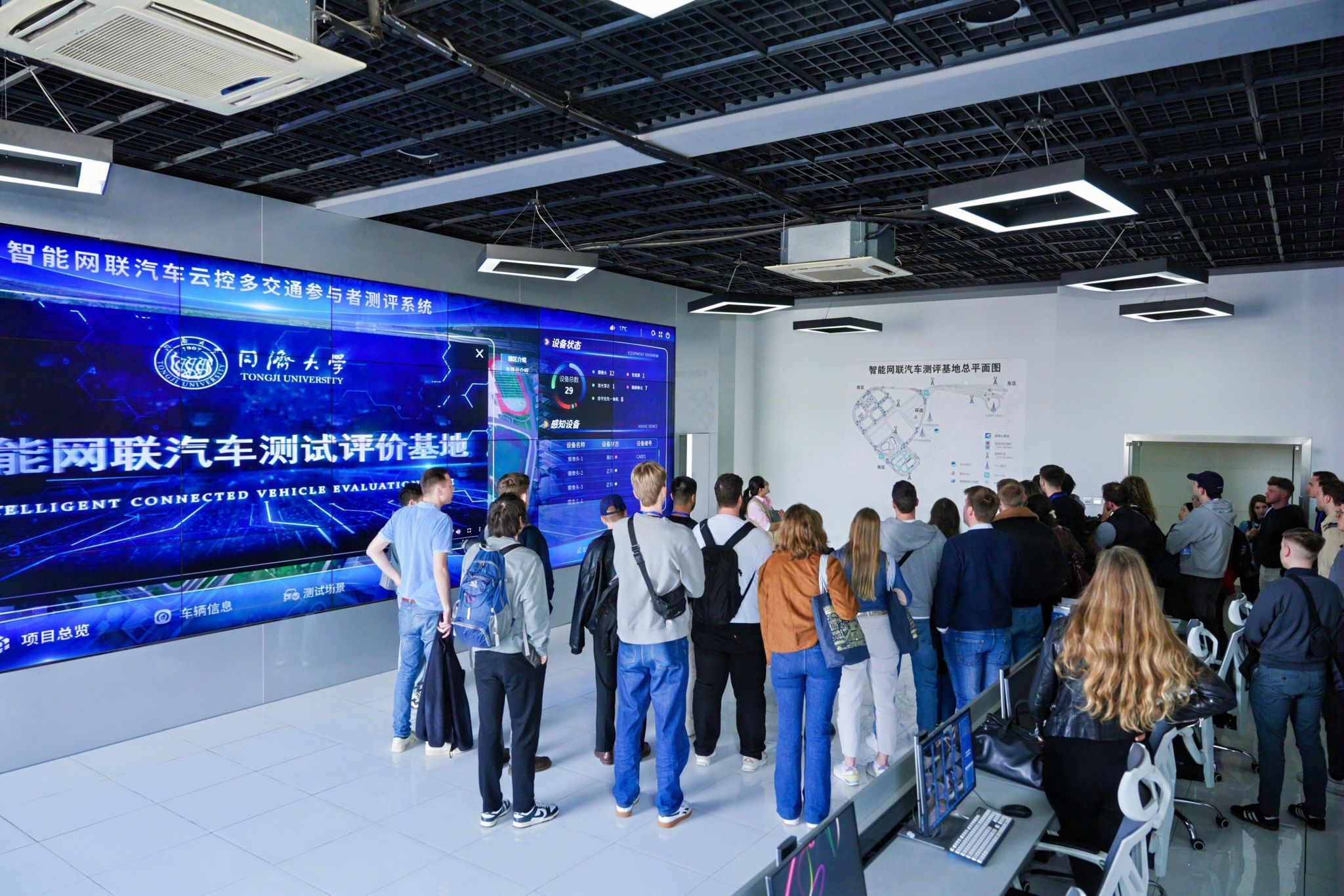From April 1 to 2, 2025, the first TUB-Tongji Spring School Programwas successfully held. 29 outstanding international students from five leading German technical universities - TU Berlin, TU Munich, Ruhr University Bochum, TU Braunschweig, and TU Graz visited the School of Automotive Studies,Tongji University. Organized through theSino-German Research and Development Center for Automobility (Chinesisch-Deutsches Forschungs- und Entwicklungszentrum für AUTOMOBILITÄT, CDZA), this pioneering program focused on "Autonomous Driving Technologies for Future Mobility", facilitating dynamic academic exchanges between Chinese and German students in intelligent connected vehicles and new energy solutions.

During the event, the students paid a visit to the Clean Energy Automotive Engineering Center and took a tour of the Autonomous Driving Simulator Laboratory. The laboratory director presented the self-developed Intelligent Connected Vehicle Hardware-in-the-Loop (HIL) Testing Platform. This is an advanced simulation system capable of creating highly photorealistic virtual environments. This innovative platform allows for the comprehensive validation of autonomous driving systems under extreme operating conditions, all while ensuring absolute testing safety. As a result, it provides robust reliability verification for next-generation driving technologies.
In the academic presentation session,Associate Professor Tian Wei from the School of Automotive Studies presented an engaging report entitled "Uncertainty Modeling in Deep-Learning Methods for Intelligent Driving Perception Tasks." He comprehensively dissected the pivotal technologies of 3D object detection and scene reconstruction within traffic scenarios. Moreover, he elaborated in detail on how the implementation of probabilistic modeling and inference regarding errors or noise could effectively boost the perception capabilities of relevant models. This technological advancement has remarkably enhanced the capacity of intelligent driving systems to handle intricate traffic environments. It enables more precise target recognition and furnishes a robust foundation for decision-making processes.

Associate Professor Zhang Yuanjian delivered a lecture titled "Autonomous Driving Technology Enhanced by Digital Technology," during which he shared a range of research accomplishments of his team in this domain. The content encompassed the design of a generalized software architecture, the establishment of hybrid virtual-real-world testing scenarios, the strengthening of perception technologies in extreme environments, and the exploration of applications of large models within the autonomous driving field. These technological innovations not only propel academic advancement,but are anticipated to assume a more pivotal role in future transportation systems.
Following the presentations,the students visitedtheIntelligentConnected VehicleEvalutionBase, whichstands as the first national-level intelligent and connected vehicle testing demonstration area situated within a university and authorized by China's Ministry of Industry and Information Technology.

At the base, the students had the opportunity to observe the world's first cloud-controlled multi-traffic-participant testing and evaluation system for intelligent connected vehicles, which was independently developed by Tongji University. This system benchmarks itself against the world's top-tier intelligent vehicle test sites and has taken the lead in implementing large-scale, complex dynamic scenario testing for real vehicles in a field with numerous traffic participants.
Through this on-site visit, the students were able to get a firsthand experience of the most advanced technological achievements in the field of intelligent and connected vehicles. It also provided them with a more tangible understanding of the knowledge they had learned in class. Many international students remarked that the visit had truly made them sense the robust development momentum and vast potential of China in the intelligent driving technology domain. It significantly piqued their interest in delving deeper into this field. They further expressed their aspiration to construct a bridge for Sino-German technological communication in future international exchanges and cooperation, thus jointly advancing the global development of intelligent driving technology.
The School of Automotive Studies at Tongji University, as an important window for cooperation with Germany, has long been actively promoting cooperation and exchanges between the two sides in various aspects such as automotive technology research and talent cultivation. In the future, the school will also continue to create more influential international exchange brands through such activities, inject new vitality into Sino-German cooperation in the automotive field, and provide new impetus for cultivating automotive engineering talents with a global vision.
